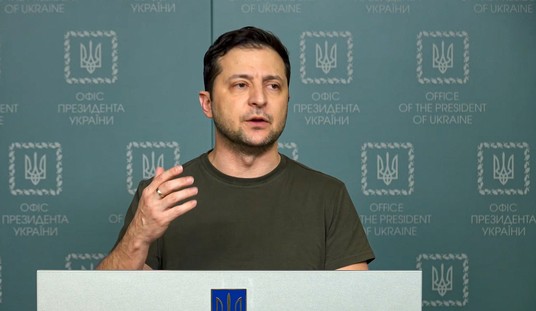Call it a case of imprudent candor. A Los Angeles Police Department detective today finds himself on the hot seat over some, shall we say, unfiltered comments he made during a training session at the Los Angeles police academy last November. Detective Frank Lyga, a 28-year veteran of the LAPD, was addressing a group of officers attending in-service training when he veered from whatever the course syllabus might have been and into a tangent about a 1997 shooting that has, despite his many accomplishments as a detective, overshadowed his career.
I pause here for full disclosure (or as full as someone writing under a pseudonym dares): I have known Detective Lyga since before the 1997 shooting, though I do not know him well. It has been some years since I’ve seen or spoken with him, but for some time in the 1990s I was assigned to a narcotics squad that often worked in conjunction with Lyga’s. At that time I knew him to be an outstanding detective, among the most thorough and tenacious I’ve ever worked with. He was tireless in pursuing leads into a drug conspiracy, arresting a street dealer and then developing information that led to his supplier, and then to the next guy up the chain, and so on. He would nab the guy with the grams, then the guy with the ounces, and finally the guy with the kilos, often working overtime well past the point that his coworkers, myself included, were exhausted and ready to go home. It seemed as though he worked late every night and was in court every morning.
And during that period, Det. Lyga worked with officers of both sexes and all ethnicities, and not once did I hear any cop of any description even hint that Lyga was anything less than professional in his relationships with his coworkers. All he cared about was that you pulled your weight and could handle yourself when things got messy, as they often did. He was precisely the kind of cop you wanted next to you as you went through the door on a search warrant. In the years since, his reputation as a cop has remained unsullied, at least as far as his peers are concerned.
Many of his superiors, however, would no doubt offer a different opinion. Which is just fine with Det. Lyga, as he has grown accustomed, as many of us have, to being disappointed by them. But his cynicism about the LAPD management runs far deeper than that harbored by most of us, deeper even than my own. But not without good reason, for in the aftermath of that 1997 shooting he saw just how far some in the LAPD were willing to go to pursue political expediency at the cost of one man’s reputation and career. Det. Lyga survived the ordeal, but only because the facts of what occurred were overwhelmingly on his side.
I’ll explain. The 1997 shooting is today being mischaracterized as having arisen from a road rage incident, with the implication being that Det. Lyga was somehow at least partly to blame. Yes, Lyga and the man he shot were both driving in cars, but there had been no dispute about one driver cutting the other off or anything of the sort.
The shooting went down as follows: On the afternoon March 18, 1997, Det. Lyga was working as a plainclothes narcotics detective in Hollywood. He and other members of his squad had followed a lead into the adjacent area of North Hollywood, and having finished their investigation were on their way back to Hollywood. Det. Lyga was riding alone in an unmarked car, a Buick Regal. Stopped in traffic at the busy intersection of Lankershim and Ventura Boulevards, Lyga saw a green Mitsubishi Montero come to a stop to his left. Rap music was blaring from the Montero, and Lyga turned to see a black male behind the wheel. The Montero driver seemed to be staring in Lyga’s direction and shaking his head, and Lyga assumed he was looking at something or someone on the sidewalk to his right. He looked over and saw that the sidewalk was empty. Turning back to the Montero, Lyga saw the driver still staring at him.
Lyga rolled down his driver’s side window. “Can I help you?” he asked the man in the Montero. “Roll that window up, you punk mother****er,” came the reply. “Get out of my face or I’ll put a cap in your ass!”
There followed an exchange of words in a similar vein, with the Montero driver telling Lyga to pull over. Lyga did pull to the side of the road, but when the Montero did likewise, Lyga pulled back into traffic in an effort to avoid a confrontation.
Lyga began broadcasting on his police radio, advising his teammates that he was having trouble with an irate driver and asking them to respond. Before any of them did, however, the Montero driver raced back into traffic, even driving on the wrong side of the road for some distance before again catching up with Lyga, who again found himself caught in traffic.
But now, when Lyga looked at the Montero driver he saw the man was doing more than shouting insults — he was aiming a handgun at him. Lyga pulled his own handgun and fired twice, with the second shot hitting the Montero driver. The Montero made a U-turn, then coasted to a stop in a gas station, the driver now dead from a bullet through his heart.
As it turned out, the dead man was an off-duty LAPD officer named Kevin Gaines.
There is much, much more to the story than I have space for here, but the incident and its aftermath were thoroughly described in Randall Sullivan’s 2002 book Labyrinth, which not only detailed Kevin Gaines’s ties to gangster rap recording label Death Row Records and a Los Angeles street gang, but also similar ties connecting a number of LAPD officers to the same recording company and same street gang. Some of those same officers, Rafael Perez chief among them, would, not long after the Gaines shooting, become the central figures in what became known as the LAPD’s Rampart scandal, in which a handful of officers at Rampart Division engaged in all manner of corrupt activities, including shooting and paralyzing an unarmed man, then planting a gun on him and fabricating a case against him that would send him to prison in a wheelchair. The scandal was discovered after a large quantity of cocaine went missing from an evidence storage facility, cocaine that had been seized and booked into evidence by Lyga. Investigators theorized that the theft was partly motivated by a desire to discredit Lyga as payback for the Gaines shooting.
But at the time of the Gaines shooting the Rampart scandal had not yet broken, and there was enormous pressure within the LAPD and city government to find Det. Lyga at fault for having shot Gaines. The shooting was investigated more thoroughly than any other I’ve heard of. Every witness, every frame of security video, every last bit of physical evidence, all of it confirmed Lyga’s account of what had happened.
But that didn’t stop a group of black LAPD officers, including Gaines’s friend and former partner Derwin Henderson, from conducting their own off-duty, unofficial investigation, the aim of which was to undercut Lyga’s story. As detailed in Labyrinth, the black officers intimidated witnesses and attempted to put words in their mouths that would contradict Lyga’s account of the shooting. It didn’t work, and the shooting was ultimately ruled within policy by the LAPD and found to be justified by the L.A. County district attorney’s office.
Still, the city of Los Angeles settled a lawsuit filed by Johnnie Cochran on behalf of Gaines’s family for $250,000, an amount that ordinarily would have to be approved by the city council. The city attorney, James Hahn, who would soon run and be elected mayor of L.A., circumvented this provision in the law by issuing several checks totaling $250,000, no single one of which would trigger alarms within City Hall. The judge who oversaw the case took the unheard of step of writing a letter to Bernard Parks, who at the time of the shooting was in charge of internal affairs but later became police chief, stating that had the case not been settled and instead come before him for adjudication, he would have found for Lyga and the city.
Lyga was removed from field duty and treated like a leper for the duration of the investigation, this despite the complete lack of evidence of wrongdoing on his part.
So it’s important to keep this background in mind as you listen to the remarks Lyga made, remarks that have some people calling for him to be fired. “I tell the truth,” Lyga told his audience at the police academy. “Sometimes I tell the truth to the point where it’s detrimental to me.”
Indeed. In recounting his experiences in the wake of the Gaines shooting, Lyga made some crude and insulting remarks about a lieutenant and a captain, both of whom he described as having a role in the attempt to smear him. It was unprofessional of Lyga to make the remarks in such a setting and he deserves some form of punishment for it, no matter how widely shared on the LAPD his opinions about the named individuals may be. But he should not be fired.
What’s most troubling to me in this episode is to hear people calling for Lyga’s head on a pike for expressing himself freely but crudely about people who engaged the entire LAPD internal affairs apparatus in a vain attempt to ruin him, while those same people are today portrayed as victims for having been coarsely spoken of.
Frank Lyga is a great cop whose tongue can be a bit too loose. No one who knows him would argue either point. Let him get back to work.










Join the conversation as a VIP Member